What is the best vinyl wallpaper adhesive?
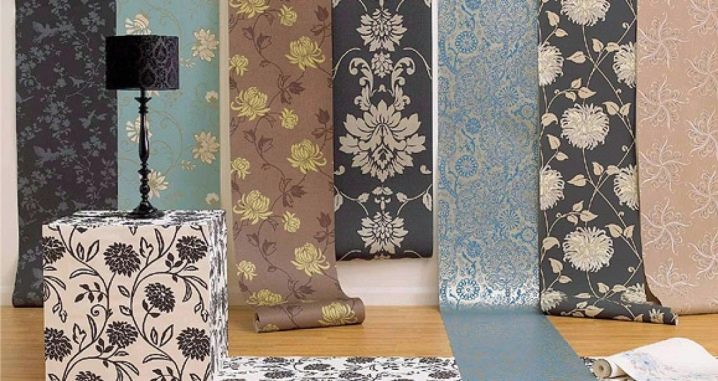
When planning to carry out repair work on your own, you need to carefully study the features of building and decorative materials in order to efficiently fulfill your planned repair program.
Nowadays, there are many types of wallpapers, paints, adhesives and many other building supplies. You go into a store, and your eyes run up - you don't know what to choose and how to use it.
A frequently purchased, fashionable, diverse and popular wall decoration material is vinyl wallpaper. They look impressive, creating an individual design. But many make a mistake when buying glue, not knowing which one is more correct to choose one so that the wallpaper does not come off in the first day.
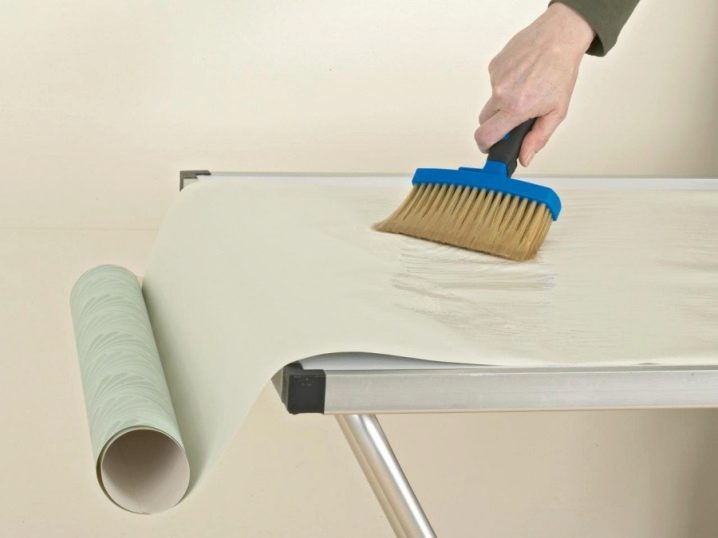
Peculiarities
When trying to find the right glue, it is important to know what the vinyl wallpaper is made of.
They have a non-woven or paper base - this is the first layer. Paper-based wallpaper is an environmentally friendly material, great for children's rooms and is a budget option. The glue is applied to the wall, as well as to the base, then rolled up so that the wallpaper is saturated with it. This option is simpler and more familiar to all of us.
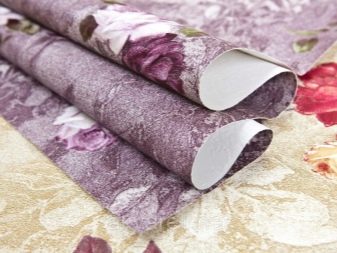
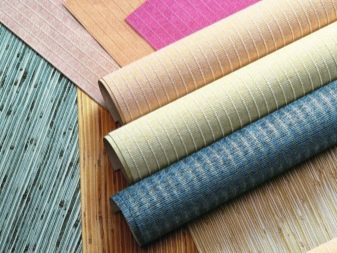
Vinyl on interlining is more practical, since even a person who has nothing to do with construction can handle it. It is almost impossible to get it dirty, you can wash it with detergents if you have pasted wallpaper in the kitchen. Has the property of stretching when pasting. Then you will notice that the space in the room has visually increased, and this wallpaper also reduces sound transmission.
An important property is protection from moisture, but at the same time, a decrease in air permeability. Vinyl has extraordinary strength, versatility and durability.
You need to glue the wallpaper joint to joint, and apply the glue only to the walls.
The second layer is the outer side, which is divided into several types.
- Foamed vinyl;
- Smooth vinyl;
- Silk-screen printing;
- Hard vinyl.
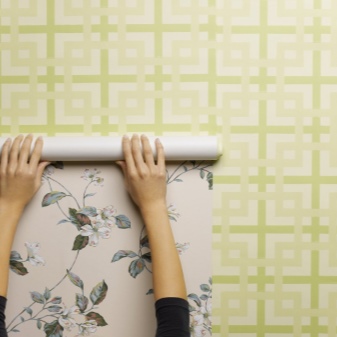
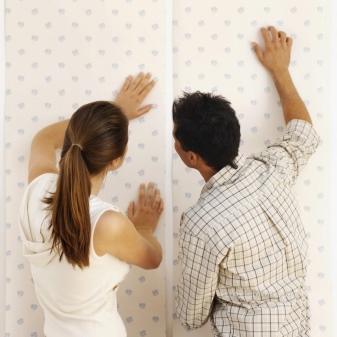
Views
The types of glue that are used for pasting vinyl wallpaper are varied. The glue is selected depending on the base.
These types can be purchased.
- For paper wallpapers;
- Non-woven;
- With indicator;
- Universal;
- For fiberglass;
- Border.
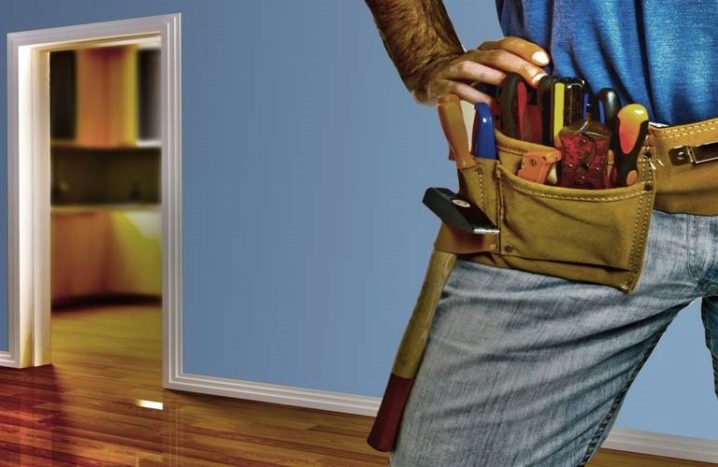
Difference in compositions
Allocate adhesives on starch, methylcellulose, methylhydroxyethylcellulose, mixed,
- Glue on starch absolutely not harmful to your respiratory system, diluted with plain tap water, applied to the wall and wallpaper with an ordinary brush. Quite a budget option, does not leave marks and is perfectly washed off the floor and other surfaces. Can be used for both paper and non-woven backing. The only downside is the presence of lumps.
- Methyl cellulose adhesive has a more reliable and strong hold on any surface. Its cost is much higher than that of glue on starch. Contains resin impurities. When applied to walls, it is more economical, it can be quickly prepared for the pasting process, does not leave marks, is resistant to temperature influences. Suitable for all types of bases.
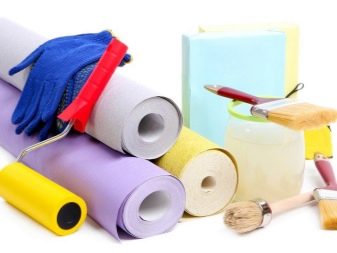
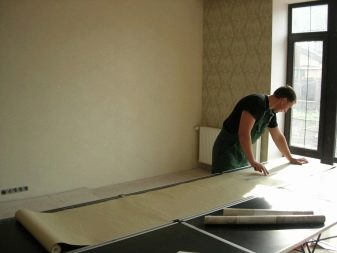
- Mixed adhesives they contain starch and methylcellulose. They have high adhesive properties, odorless, evenly divorced, without lumps. Unfortunately, this glue does not last long and deteriorates quickly.
- Methylhydroxyethylcellulose adhesive expensive for budget repairs. Possesses unique fixing properties due to a combination of substances and impurities. You can even apply this on cement. A huge plus is that it is moisture resistant.
- Glue with indicator. The indicator has any composition to which a dye is added. It is acquired in order to see the uniformity of the distribution of glue when smearing walls and wallpaper. The indicator is usually pink or blue and neutralizes when it dries.
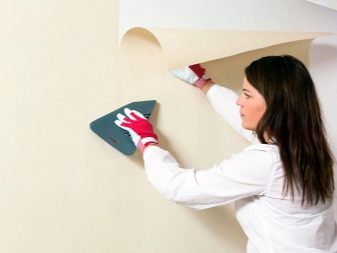
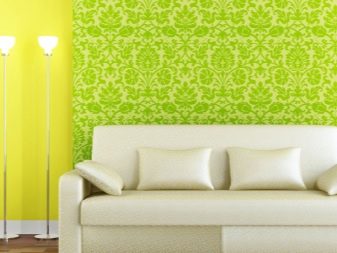
Brands
The sales leaders are manufacturers from France, Germany, England and Russia.
- The best French construction companies - Kleo, Quelyd.
- German brands - Metylan, Moment Vinyl by Henkel, Pufas Euro 3000 Special vinil, Pufas, Dufa Tapetenkleister.
- Russian quality manufacturers - Quality.
- English inexpensive adhesive is available from Exclusive, Axton, TD 2000.
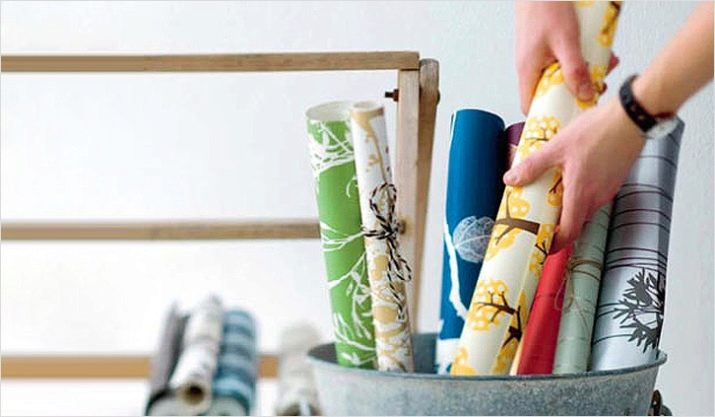
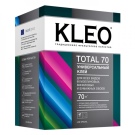
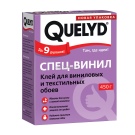
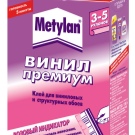
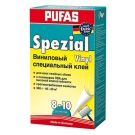
Which one is better to choose?
When choosing, it is important to take into account the features of the wallpaper you have chosen.
Examine the label on the roll and try to follow the instructions given.
According to online reviews, there are 5 best wallpaper adhesives for vinyl options.
- Kleo. Quality, which comes first, consists of starch and antifungal agents. It does not leave marks on wallpaper, can be diluted well with warm water and does not leave lumps or clots. Has a good adhesion effect. Diluted product can be applied with any brushes. Washes well, leaves no residue. If you've mixed a lot of glue, don't worry, it won't dry out quickly. There are a large number of types of glue of this company, which are designed for ultra-thin wallpaper, glass wallpaper, paper, paintable, corrugated and many other types.
- Pufas. Quite popular, environmentally friendly material without impurities. It also does not leave clots when stirred. Easy to apply without leaving marks. It is suitable for gluing non-woven vinyl wallpaper.
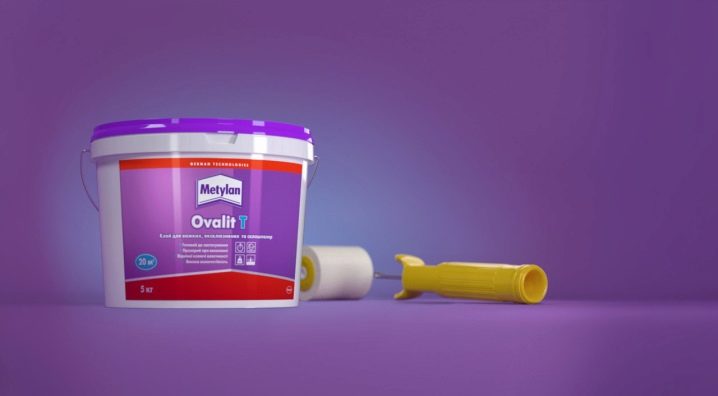
- Metylan. Well-known to all, thanks to advertising. Suitable for working on any wall surface, has antifungal additives and a pink indicator. Suitable for paper backed wallpapers. Hypoallergenic, leaves no residue, divorces without clots, has a strong hold.
- "Moment". Universal, suitable for all types of wallpapers. Protects walls from mold. An economical option. Has a high adhesive effect, and there is no unpleasant odor.
- "Quelyd Special Vinyl". Less well known in our market. You can use this product for heavy non-woven wallpaper. It is stored for a long time in a diluted form, it is easy to apply to the surface, but it is expensive. Suitable for gluing rooms with high viscosity. The only drawback is that the indicated numbers on the box do not correspond to the flow rate. Designed for gluing metallized, cork wallpaper.
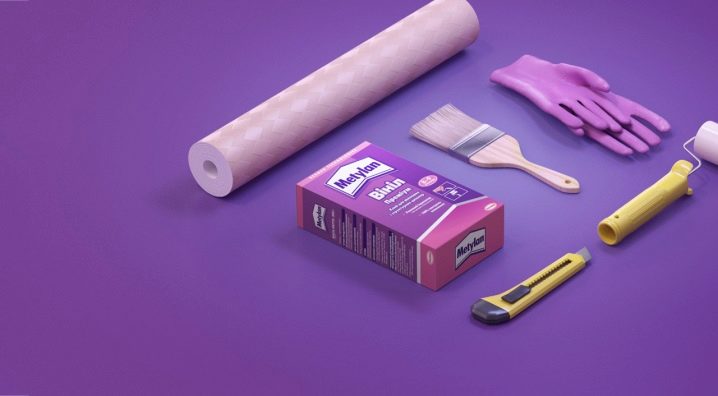
We calculate the amount
Usually the manufacturer writes on the box for how many rolls the box of glue is designed for. For example, a package is designed for 6 rolls, 14 rolls, or even 30 rolls. Do not believe it, rather, this is just a publicity stunt that should not be taken into account.
To calculate how much glue is needed to wallpaper a room, you need to act like this: one package is on average enough for 20-25 sq. m of surface of imperfect, that is, uneven walls. For example, for a room with an area of 12-15 sq. m with a ceiling height of 2.50-2.60 m, approximately one and a half packs are required.
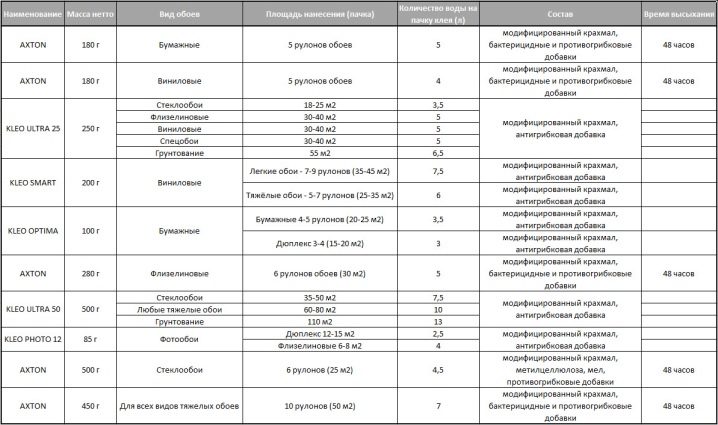
How to breed?
Before using, look at the expiration date of the glue and make sure that it is not expired, also read on the box how to properly dilute the product.
Place the product, preferably in an enamel container, prepare the required amount of warm water at a temperature of about 25 degrees.
Then gradually pour in the glue, while stirring it. Stir so that there are no lumps or lumps. You should have a solution that is smooth and fluid.
Then let the glue stand for about 7-10 minutes, and then mix it again. For heavy wallpaper, the glue should be thicker than usual in consistency.
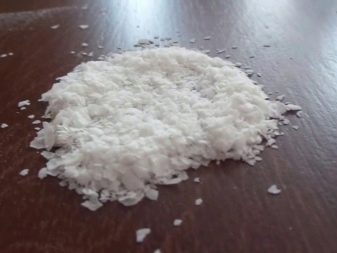
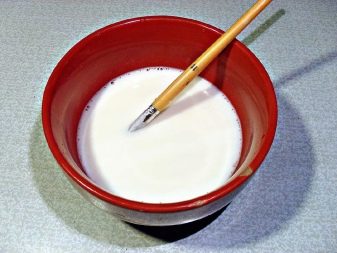
How to apply to wallpaper?
First of all, you need to prepare the walls. Vinyl wallpaper is glued to flat surfaces without roughness.Remove the remnants of the old wallpaper well, as the new material is thin, and all the irregularities will be visible through it. It is best to putty all surfaces before wallpapering.
Be sure to go through the surface of the walls with a primer, it reacts with the glue, gives a more reliable adhesion to the wallpaper.
The technique is as follows:
- Cover the surface with a primer;
- Leave to dry;
- Then sand the surface;
- Go over the primer again.
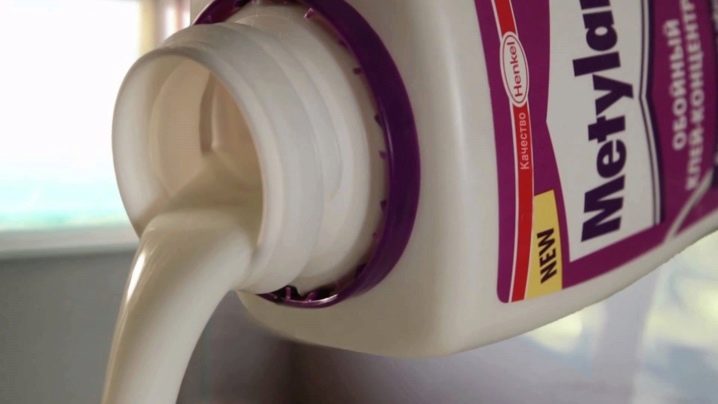
A highly diluted adhesive can be used instead of a primer mixture. The basic rule is to apply glue in an even layer, from the middle to the edges, the wallpaper cannot be stretched after glue is applied, the wallpaper must be glued to the wall from top to bottom.
Paper-based vinyl wallpaper will require more glue consumption, as manufacturers advise to apply the product both to the material and to the walls. With a special brush we apply it to a certain section of wallpaper, then fold them in half so that the wallpaper can be saturated at the time of pasting. We cover the wall with glue before proceeding directly to wallpapering. We glue the wallpaper joint to joint, remove excess glue with a dry soft cloth.
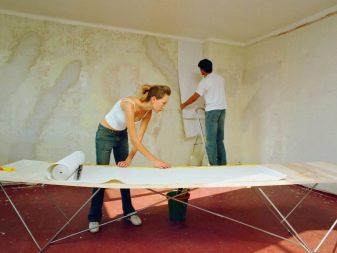
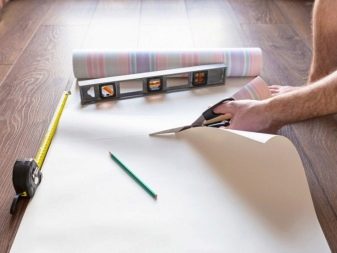
Non-woven vinyl wallpaper does not require any glue. The manufacturer recommends applying it either to the wall or wallpaper.
The best way is to apply a generously diluted product only to the wall. We glue the same, joint to joint, wipe the solution protruding from under the wallpaper.
How long does it dry?
The rough work you have done will dry for about two to three hours. The temperature in the room should be about 20-23 degrees, also do not forget about the humidity, it should be medium, in no case low, as this can increase the drying time. But you should not allow all doors and windows to be opened for airing after two or three hours, as you can accidentally ruin all the work you have done.
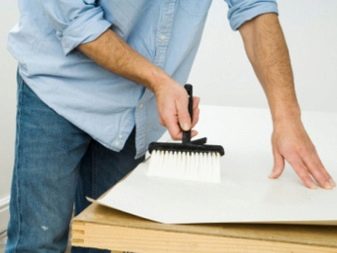
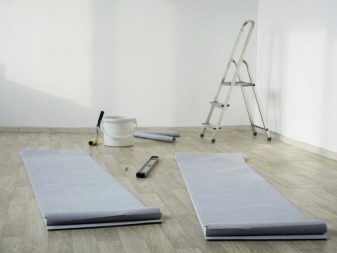
It is best to leave the room closed for a day, and then proceed to the next item of your planned work.
How long does the glue last?
After pasting the wallpaper, it happens that often a certain amount of glue remains if it is diluted, so to speak, with a margin.
In such cases, you need to take care of the safety of the glue.
- First of all, tightly cover the container with oilcloth so that the solution does not have contact with air, this will shorten the drying time of the glue.
- It is also recommended to put it in a dark, not very humid place, preferably at a lower temperature so that microorganisms do not begin to grow in the glue, and it does not go bad.
- Usually the diluted product is stored for about one to one and a half weeks. At the same time, it is important to know the characteristics of the glue manufacturer, some companies write on the packaging how much the substance can be stored in a diluted form.
- If there is not so much solution left, then pour it into a jar, close hermetically with a lid and refrigerate, so it will be stored for a longer time. If this substance is vacuum packed, then you can store it for about three months.
For information on which glue for vinyl wallpaper is best, see the next video.













I used Metylan glue for vinyl wallpaper on a non-woven base - I didn’t regret it. Prepares quickly, the wallpaper looks like a glove, no stains. By the end of the work, when thickening, you can add water, and the adhesion strength does not suffer.
The comment was sent successfully.